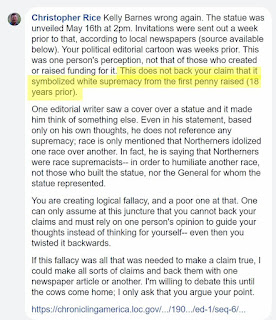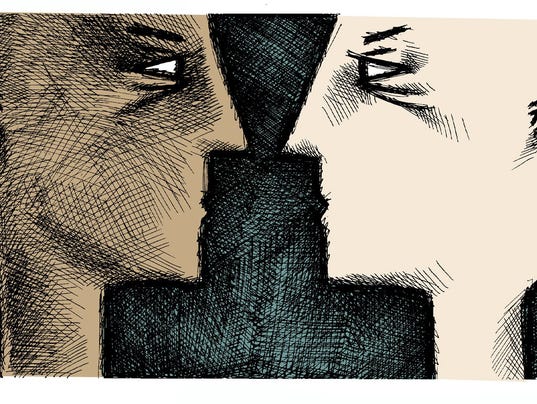This is where the story the Bible tells begins to emerge from the fog of mythology, and into the dim shadows of Legend, Geography and History. The fog isn't going away, but that's one of the cool things about this story of us, we Heirs of Abraham.
After the Flood
Eden had been washed away. The Sumerian population had apparently been nearly wiped out by a natural disaster that may have been made worse by all the irrigation ditches. The people who lived east of the Tigris, and north and west of the Euphrates, however, were poised to come into their own and displace, absorb, or perhaps cleanse the Sumerians (I don't care to guess which, but it's believed that the Sumerians' reputations were based on how bad-ass and rich they were).
Oh, sure, there were Sumerian survivors of the flood, in addition to Noah and his kin. They had a Noah story to, only the man's name was Utnapishtim and his ark landed in the Zagros Mountains (modern Iran), east of the Tigris.
Whether one both or neither of the myths is the "real" one, or the first one, or even close to actual fact, is a discussion best left to the comments section and/or another post.
What's important to us is that this is the story the Bible tells, and it's an historic fact that Noah's story has been widely believed for millennia (If you can manage it without getting judgmental, spell propaganda).
What the Bible doesn't make clear (myth and fog) is that anyone who lived near the northern edge of "the world," in the pasture lands west of the Euphrates, or in the Zagros Mountains to the east escaped the disaster.
 |
HEY SOCIAL STUDIES TEACHERS!
I made this chart using Google Earth satellite technology, a digital camera, and Power Point. |
We call the people who lived west of the Euphrates, Semites (get it? Shem-- Shemite -- Semite).
So far, I've called the sons of God; Adawmish, Sumerian, and now Semitic. Before we get to Abram, one of the more talked about men among Shem's descendants, I'll start calling them Hebrews.
We'll get back to Shem and the Hebrews in future posts, because first you need to know what became of Japheth and Ham, and their descendants.
Japheth
Japheth basically took his tribes north and west to contribute Adam's DNA (and culture) to other early ancestors of the Greeks, Phoenicians and other ancient peoples who had yet to assume their identities.
This is pretty much the last we'll see of Japheth, except for when Solomon buys all that cedar from the Phoenicians, and even then Shem's younger brother isn't mentioned.
Ham
Ham's sons stayed a little closer to home. Canaan's and Mizraim's descendants weren't the only ones who, in the centuries that followed, would clash with the sons of Shem. In fact, our story implies that the descendants of Canaan's brother, Cush would establish an empire to the east and would be the first to run afoul of the seed God planted in Eve.
The Sons of Cush
Cush had a son named Nimrod, "a mighty hunter before the Lord."
Nimrod started (see that word? started) a kingdom that eventually stretched from Erech to Ninevah.
Look at Ur, where Shem lived. See how it's on the outskirts of the kingdom Nimrod started, on the west bank of the Euphrates where Sumerian farms gave way to Semitic pastures? Well -- You do now, because it's going to be a good thing to remember when we talk about the tower of Babel and how much Abram knew about it.
Canaan
The tribes of Canaan moved away from the banks of the Euphrates to the fat land between the Jordan River and the Mediterranean Sea, where they adopted different languages and established different kingdoms. The Bible mentions them often, and usually in a list that reads like a rogues' gallery.
"The Jebusite and the Amorite and the Girgashite and the Hivite and the Arkite and the Sinite..."
The list gets shorter after Moses leads a million plus people out of Egypt, but it's here that the account describes the territory the Canaanite tribes would inhabit hundreds of years later:
The territory of the Canaanite extended from Sidon as you go toward Gerar, as far as Gaza; as you go toward Sodom and Gomorrah and Admah and Zeboiim, as far as Lasha. (NASB)
 |
Google Earth lets you use grid coordinates to make sure your location markers are accurate.
Don't research without it. |
MIZRAIM
Mizraim, another son of Ham, had seven sons, one of those sons, Casluhim was a forefather of the Philistines.
 |
| As you build your collection of locations and save them to "My Places" on Google Earth, making custom charts is easy enough for your students to learn how to make their own charts. |
 |
| This one took a total of five minutes to make. What could you do if you put Google Earth in your classroom toolbox? |
Segue
Remember: the nations that sprang from the sons of Noah did not form in the time it takes to read one verse then the next. It took hundreds of years and many generations to make names for themselves and to build their kingdoms. They also developed at different rates and in different cultural directions.
That being said, we're all set to continue tracing the path of the seed, the one God planted in Eve over 1000 years earlier, as we try to discover who was where when the Tower of Babel was the symbol of Human ambition and accomplishment.
Next Time:
The Tyranny of Babel
Teachers, my caption questions weren't rhetorical. The paradigm is shifting, if our strategies don't shift with it History may become a thing of the past, and STEMSS (Science Technology Engineering Mathematics and Social Studies) will never be a thing.
What are your thoughts on the flood myths? How much can we really say about what happened 4000 years ago?
How do our separate but equal memories (myth, legend, and propaganda for example) often override more plausible constructs of our shared past (History)?
Peace Y'all























